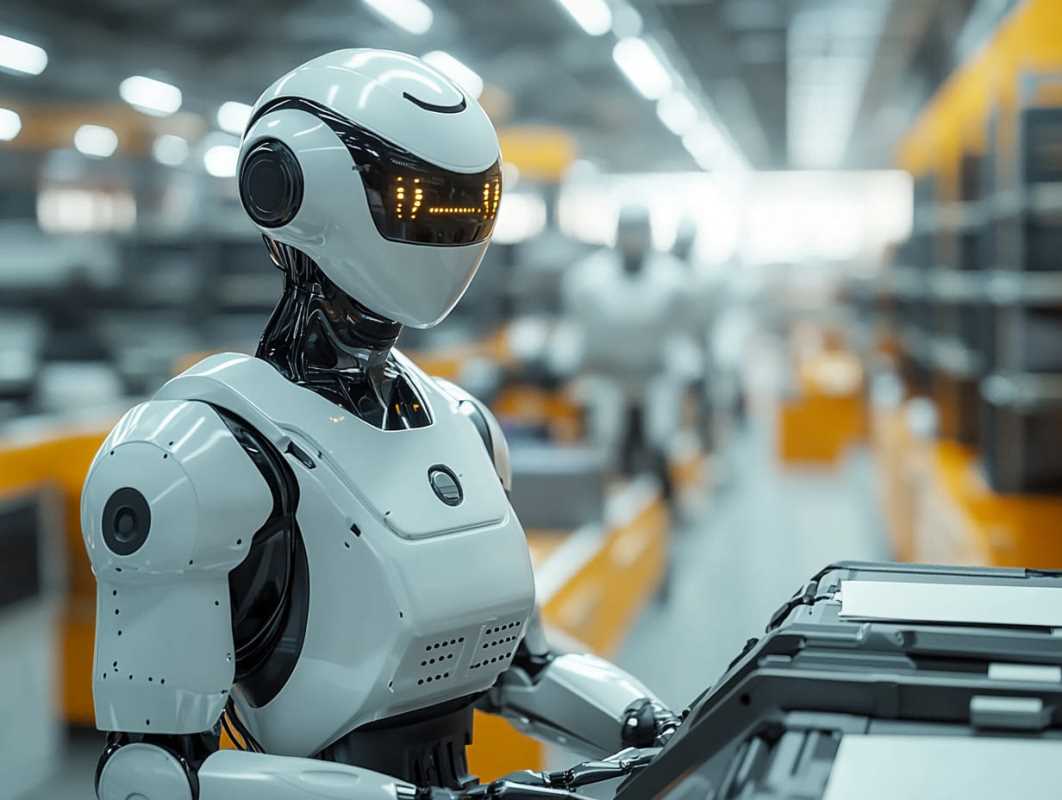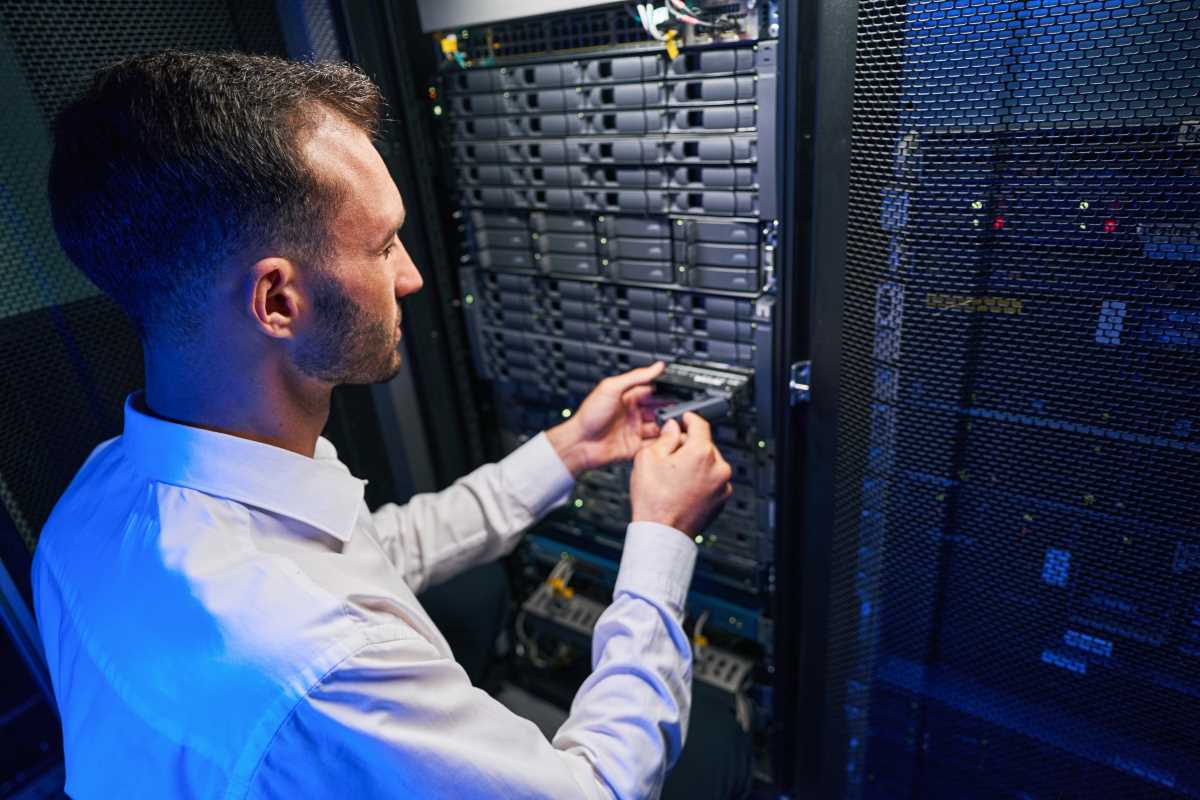The integration of collaborative robots, or "cobots," into the modern workplace is redefining productivity and efficiency. Unlike traditional industrial robots, which are often isolated due to safety concerns, cobots are designed to work alongside humans. Equipped with advanced sensors and artificial intelligence, they complement human skills by taking on repetitive, labor-intensive, or hazardous tasks.
Cobots are becoming essential in industries ranging from manufacturing to healthcare and logistics. Their adaptability and user-friendly nature make them accessible to businesses of all sizes, offering solutions that enhance operations and free human workers to focus on creative and decision-making roles.
This article explores how cobots are revolutionizing different industries, demonstrating their potential to transform workplaces for the better.
Improving Manufacturing with Flexible Cobots
Manufacturing is one of the most prominent fields where cobots shine. These robots are tailored to perform precise, repetitive tasks while seamlessly integrating with human workers on production lines.
Cobots excel in assembly, welding, and quality control, ensuring consistent output with minimal errors. For instance, cobots equipped with machine vision can inspect products faster and more accurately than humans, identifying defects that might otherwise go unnoticed. Additionally, their ability to adapt to different tasks makes them invaluable for manufacturers handling diverse product lines.
By working alongside cobots, employees can focus on complex problem-solving and innovation while reducing physical strain and fatigue. This synergy increases efficiency and improves workplace morale.
Revolutionizing Logistics and Warehousing
In logistics, where speed and accuracy are critical, cobots are game-changers. Warehouses and distribution centers are leveraging their capabilities to streamline operations and meet the demands of modern supply chains.
Cobots assist with picking and packing, autonomously navigating warehouse floors to retrieve and organize items. This reduces human error and accelerates order fulfillment. In inventory management, cobots equipped with sensors can monitor stock levels in real time, ensuring that shelves are restocked proactively.
Furthermore, cobots enhance material handling by transporting goods across facilities, minimizing the risk of workplace injuries. Their integration into logistics has led to faster processing times and a safer working environment for employees.
Transforming Healthcare with Robotic Assistance
Healthcare is undergoing a significant transformation with the introduction of cobots. These robots handle various tasks, from surgical assistance to patient rehabilitation, making medical procedures safer and more efficient.
In surgical settings, robotic systems like da Vinci enhance precision, enabling minimally invasive procedures with reduced recovery times. Cobots also support physical therapists by assisting patients with mobility exercises, providing tailored rehabilitation programs. Additionally, pharmacy automation systems use cobots to prepare and dispense medications accurately, reducing errors and freeing up healthcare professionals to focus on patient care.
By augmenting the capabilities of healthcare workers, cobots improve outcomes and create a more efficient and patient-centered healthcare system.
Retail and Customer Service Innovations
Cobots are finding a place in retail environments, helping businesses enhance customer experience while optimizing operations. Retailers are using cobots to manage inventory, interact with customers, and even assist in delivery logistics.
Inventory management cobots can scan shelves to ensure products are stocked and correctly priced, reducing the burden on employees. Interactive cobots in stores guide customers, answer questions, and offer personalized recommendations, creating a unique shopping experience. For last-mile delivery, cobots like small robotic couriers ensure quick and eco-friendly transportation of goods.
These innovations not only streamline retail processes but also provide customers with a seamless and engaging experience, fostering brand loyalty.
A Glimpse into the Future of Cobots
As collaborative robotics technology continues to evolve, the future of work is becoming increasingly dynamic and innovative. Cobots are now being equipped with artificial intelligence, enabling them to learn and adapt to their environments.
AI-driven cobots can optimize their performance over time, predict maintenance needs, and understand complex human instructions through natural language processing. Their ability to adjust to human workflows ensures even greater collaboration and efficiency.
These advancements point to a future where human and robotic teamwork will redefine what’s possible in the workplace. Cobots are no longer just tools — they are partners, paving the way for smarter and more efficient operations across industries.
The Collaborative Future
Collaborative robots are at the forefront of workplace innovation, offering solutions that blend human creativity with robotic precision. Their impact spans industries, from manufacturing to healthcare and retail, driving efficiency while ensuring worker safety and satisfaction.
As businesses adopt cobots, they gain more than just increased productivity — they create opportunities for employees to thrive in roles that require critical thinking and ingenuity. The partnership between humans and cobots signals a future where technology enhances rather than replaces human effort, fostering collaboration at its best.
The cobot revolution is here, and it’s reshaping the way we work, innovate, and grow. The future of workplace efficiency has never looked so collaborative.
 (Image source: Midjourney)
(Image source: Midjourney) 





